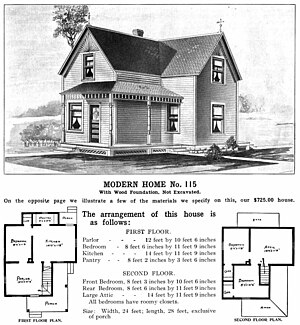**Historical Evolution of Homes:**
– Prehistoric era homes likely included caves.
– Evidence of early human species in caves.
– Sea caves used by early modern humans in southern Africa.
– Construction of huts and longhouses during the late Neolithic.
– Progression to constructing dwellings like huts and longhouses.
– Industrialization led to mass migration to cities.
– Concept of home evolved from public to private.
– Connection between home and house strengthened.
– The concept of home gained significance in the 18th century.
**Types and Structures of Homes:**
– Various types of homes exist globally.
– Different house types cater to diverse needs and preferences.
– List of house types provides an overview of housing diversity.
– Homes can range from traditional to modern designs.
– Housing preferences can vary based on cultural, social, and economic factors.
– A house is a single-unit residential building made of various materials.
– The social unit living in a house is known as a household.
– Houses may have outbuildings like garages or sheds.
– Houses may have backyards or front yards for relaxation.
– Joseph Rykwert distinguished between a house and a home.
– Moveable structures like mobile homes, houseboats, float houses, and yurts offer alternative living options.
**Home Management and Maintenance:**
– Housing cooperatives are legal entities that own real estate.
– Members of housing cooperatives purchase shares for occupancy rights.
– Housing cooperatives allow pooling of resources for cost leverage.
– Home repair involves diagnosing and resolving home problems.
– Home repair is different from renovation but can lead to improvements.
– Housekeeping involves managing and maintaining a physical space.
– Housekeeping includes cleaning, organizing, cooking, and bill payment.
– Housekeeping can be for private households or commercial institutions.
– Workplace and industrial housekeeping are related concepts.
– Housing tenure involves the financial arrangement and ownership structure of living spaces.
**Housing Tenure and Occupancy:**
– Housing tenure includes forms like tenancy and owner-occupancy.
– Owner-occupiers may own a house outright or through a mortgage.
– Rental accommodation involves agreements for property use between landlords and tenants.
– Squatting is the action of occupying abandoned or unoccupied land or buildings.
– Homelessness can occur due to various reasons like natural disasters, relationship breakdown, eviction, or mental illness.
– Anthropogenic significance highlights the deep connection between humans and dwellings.
**Home, Identity, and Society:**
– Home is a significant aspect of societal and personal identity.
– Smart home research evaluates the concept of home in modern contexts.
– Immigrants’ experiences with homes vary.
– Intergenerational relations influence perceptions of home.
– Homes have different meanings in various cultures.
– Studies explore the relationship between home and well-being.
– Home is a critical aspect of care for individuals with dementia.
– Homelessness can extend beyond physical spaces and affect one’s identity.
The examples and perspective in this article may not represent a worldwide view of the subject. (December 2021) |
A home, or domicile, is a space used as a permanent or semi-permanent residence for one or more human occupants, and sometimes various companion animals. It is a fully- or semi-sheltered space and can have both interior and exterior aspects to it.[vague] Homes provide sheltered spaces, for instance rooms, where domestic activity can be performed such as sleeping, preparing food, eating and hygiene as well as providing spaces for work and leisure such as remote working, studying and playing.

Physical forms of homes can be static such as a house or an apartment, mobile such as a houseboat, trailer or yurt or digital such as virtual space. The aspect of ‘home’ can be considered across scales; from the micro scale showcasing the most intimate spaces of the individual dwelling and direct surrounding area to the macro scale of the geographic area such as town, village, city, country or planet.
The concept of ‘home’ has been researched and theorized across disciplines – topics ranging from the idea of home, the interior, the psyche, liminal space, contested space to gender and politics. The home as a concept expands beyond residence as contemporary lifestyles and technological advances redefine the way the global population lives and works.[citation needed] The concept and experience encompasses the likes of exile, yearning, belonging, homesickness and homelessness.
Definition from ChatGPT:
Home:
"Home" typically refers to a place where someone lives and feels a sense of belonging, comfort, and security. It is often associated with a physical dwelling where individuals or families reside, but it can also represent a broader concept of a place or environment that feels like home, where one can relax, be themselves, and find emotional connection and support.